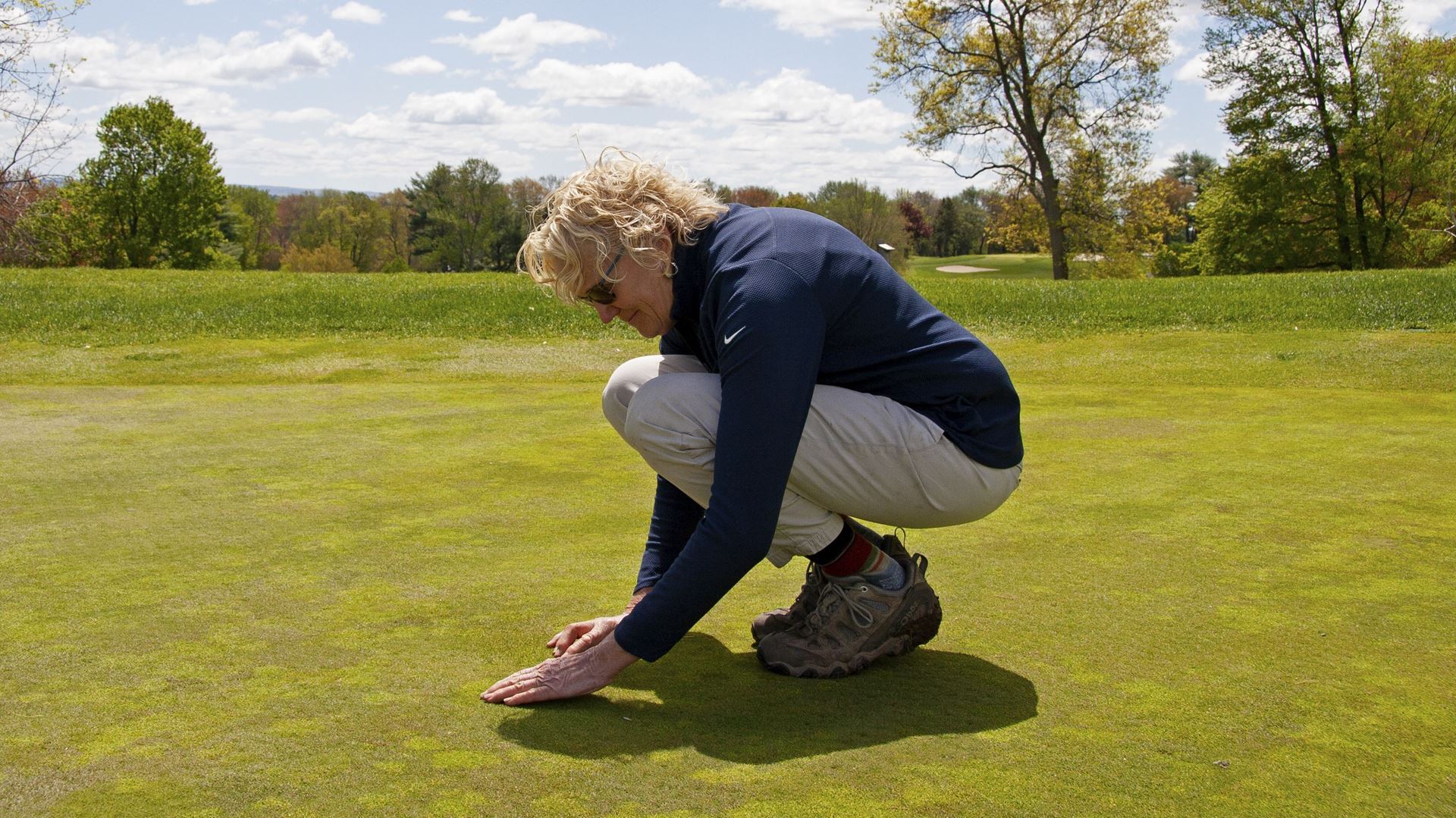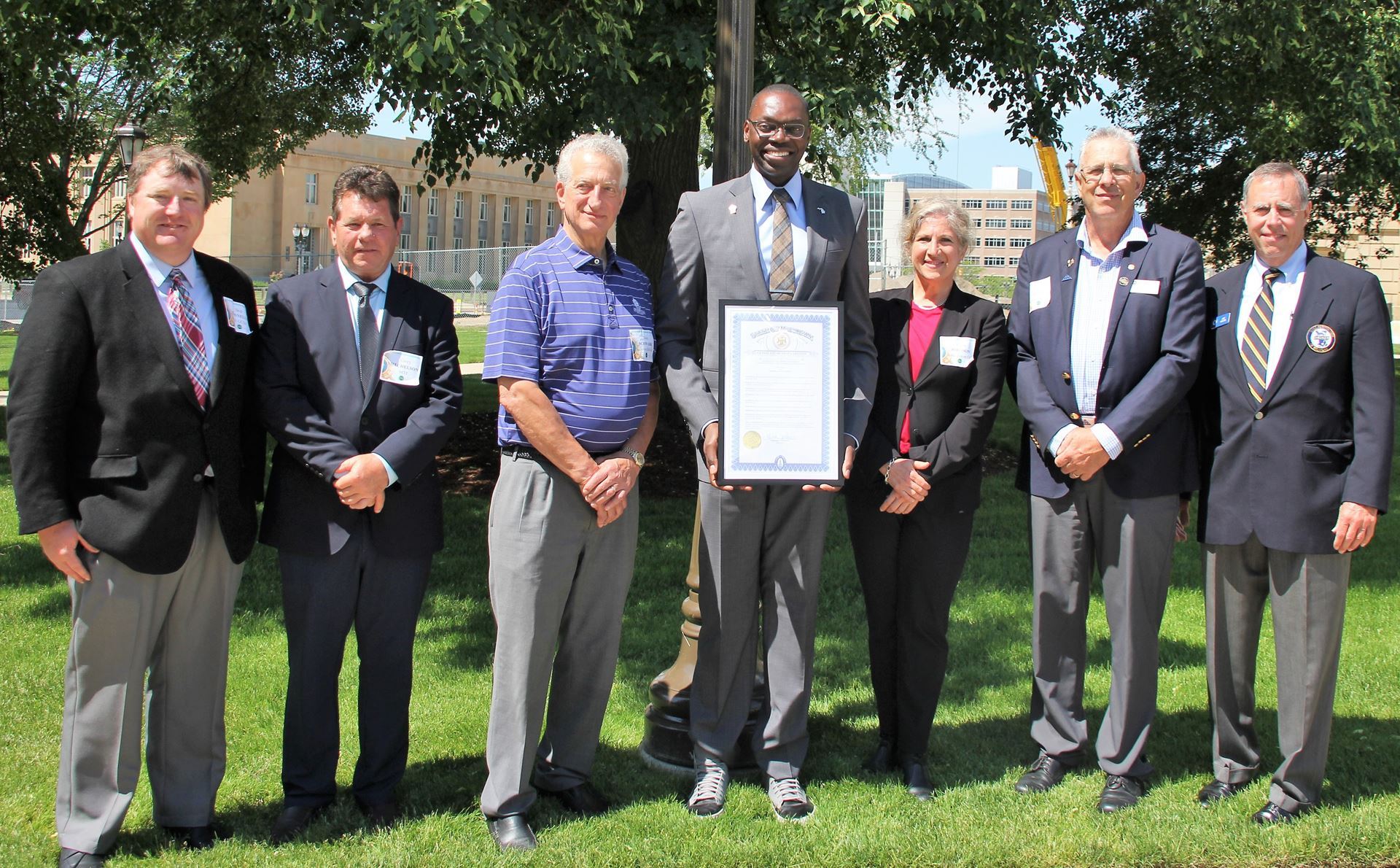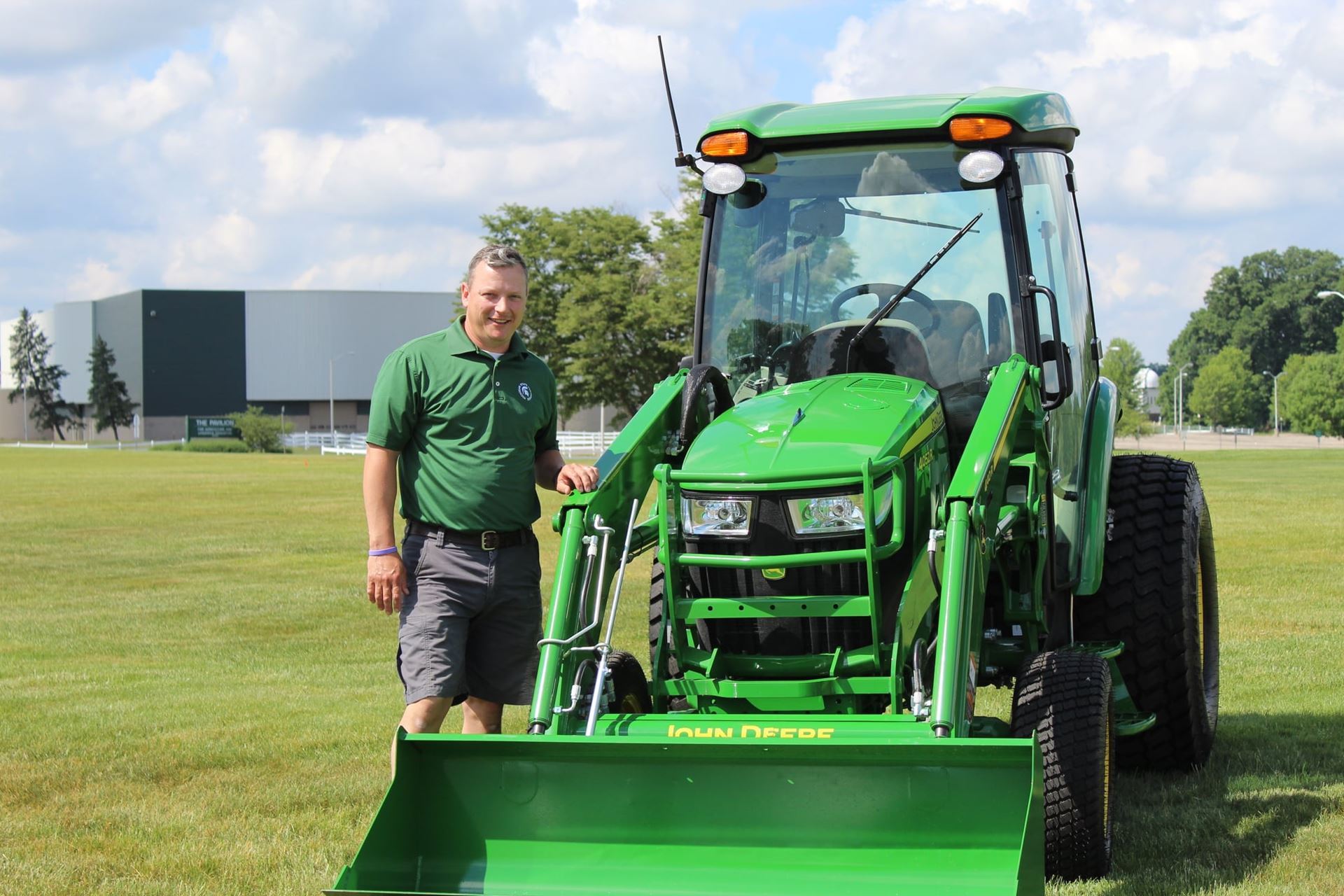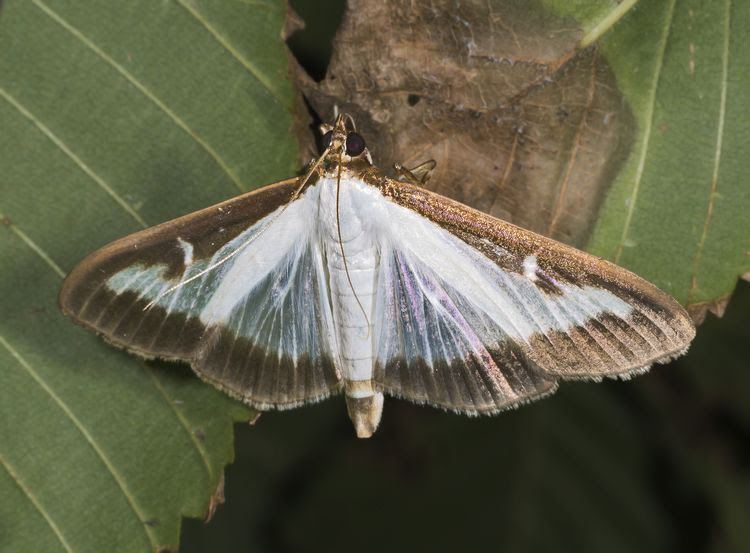

|
Around The Industry
|
|
Publications from the MSU College of Agriculture and Natural Resources, the Michigan Department of Agriculture and Rural Development, the Michigan State University Turf and Landscape Extension, the Michigan State University Extension/ Water Quality Digest and the USGA Green Section have been recently released. The Michigan Turfgrass Foundation is proud to share recent news and support these exceptional turf related programs at Michigan State University and turf related organizations throughout our industry.
|

Careers in Agriculture & the Green Industries is ideal for employers who seek MSU’s top talent for Summer 2022 Internships and Entry-Level Opportunities. This event is a unique recruiting event – we encourage you to recruit for all functional areas in your organization. Students that attend are there to explore opportunities for internships and full-time employment in agribusiness, sales, marketing, logistics, research & development, technical roles. production agriculture or the green industries. Employers represent all aspects of Agriculture & Horticulture such as agronomy, dairy, equine, livestock, poultry, companion animal, fruit & vegetable, landscape & turf grass industries. MSU two-year Agriculture Technology certificate students, bachelor’s degree students (BS, BA, BLA) and advanced degree students (MS and PhD) attend this fair.
Date: Tuesday, September 28
Time: 3:00 – 6:00 pm EST
Location: Virtual on Handshake
Register online: https://app.joinhandshake.com/career_fairs/24869/employer_preview?token=GJ8Njz16VyxP6B9tYcx_0Wug7YBUtwZd8ZlE05jKgZXiTpqJSsg2fQ
Questions – contact Jill Cords, CANR Career Consultant at jcords@msu.edu

USGA Green Section Record

The Ins and Outs of Managing Poa Annua Putting Greens
By Zach Nicoludis, agronomist, Central Region
Although Poa annua putting greens sometimes face criticism, this grass can provide excellent conditions and is the preferred putting surface at some of the most famous courses in the country. There are also many courses where Poa annua greens are the reality regardless of superintendent or golfer preferences. Whatever the case may be, knowing the strengths and weaknesses of this grass is necessary for successful management. As is an in-depth understanding of the agronomics needed to optimize turf health and playing conditions.
Read more at USGA.org

The Growing Impact of Women in Golf Course Maintenance
By Bradley S. Klein
Women make significant contributions to course care and their impact is growing. There is still more progress to make, but the future of women in turf science and golf course maintenance keeps getting brighter.
Read more at
usga.org


|
Legislators Learn of Golf's Community Impact
|
|
“Members of the Michigan Golf Alliance, a cooperative body of five state golf associations, shared its message of economic, environmental and human impact of the game with face-to-face talks over lunch and a program that included presentations by Renee Fluker, the founder and president of the Midnight Golf Program in Detroit, Gilda Johnson, the owner of Lake Forest Golf Club and the Michigan Golf Course Association president, and a video featuring Dr. Brian Horgan of the Michigan State University College of Agriculture & Natural Resources.”
Dr. Brian Horgan, Department Chair of Plant Soils and Microbial at MSU was unable to attend. However, in his absence he provided an informational video to attendees regarding Golf Courses and their importance in the ecosystem with relation to Urban areas.
To view the informative link – click here
Read more at mgcoa.org
|


|
The Michigan Turfgrass Foundation Welcomes Paul Kuhna to Board of Directors
|
|
Paul Kuhna
Head Groundskeeper - Lansing Lugnuts (Oakland Athletics High A Affiliate)
Representing: Sports or Institutional Turf
Home town: Grosse Pointe, Michigan
How did you get interested in turf?
“My parents had season tickets to the Detroit Tigers, so I went to about 20 or 30 games a season growing up. So I really just like being at the ballpark a lot, being around the field, running the bases after games, when I was a little kid I thought that was awesome.
What made you decide to attend Michigan State University?
“Michigan State has a great turf program, but I would have gone there for anything. My dad went there, uncles went there, I grew up a Spartan fan my whole life. I grew up going to games there, baseball, football, basketball. There was no other school I was looking to go to.
How did you end up with the Lansing Lugnuts?
“I started an internship with the Detroit Tigers my junior year. I actually had to miss a semester of college, because the internship went from March all the way through November, so I had to take an extra semester to do that. That helped me be able to start here with the Lugnuts the following spring as the Assistant Greenskeeper in 2017. I really like being in Lansing, so when the Head Groundskeeper job opened up, I applied and was excited to get the job and be able to come back here!
What are your thoughts on being a board member with the Michigan Turfgrass Foundation?
“I’m really excited to be a part of it. While attending Michigan State I learned about the foundation, but to be a part of it, I’m really excited. I’m excited to learn from some great colleagues in all parts of the industry.
|


Turf Program Receives New Tractor
|
|
On Thursday (6/10), a new John Deere tractor was delivered to Jesse Sholl, Turf Research Center Manager at the MSU Hancock Center. The tractor was funded, in part, with funds provided by the Founders Society Endowment. Learn more at michiganturfgrassfoundation.org
|

.jpg)
CONSUMER ADVISORY: Invasive box tree moth detected in Michigan nurseries, greenhouses
|
|
MDARD, USDA taking immediate action to safeguard against invasive pest
LANSING, MI - The U.S. Department of Agriculture’s (USDA) Animal and Plant Health Inspection Service (APHIS) has identified box tree moth (Cydalima perspectalis) in nurseries and greenhouses in the United States, including Michigan. This is the first detection of this invasive species in the nation. Box tree moth is not considered a forest pest because boxwood is not native to Michigan forests. However, if left unchecked, it could cause significant defoliation and death of boxwood in the landscape.
The Michigan Department of Agriculture and Rural Development (MDARD) is advising anyone, including landscapers, who purchased boxwood plants within the last two months to inspect their plants very closely for the invasive pest. Signs of infestation include silky webbing and possibly caterpillars located deep inside of the plants.
Box tree moth caterpillars are green and yellow with white, yellow, and black stripes and black spots. The caterpillars feed only on boxwoods making them easy to spot. Adult box tree moth has two color forms. The most common form has white wings with dark brown borders, while the dark form has solid brown wings with a white streak or spot on each forewing. Both forms have a distinctive white dot or mark in the middle of each forewing.
“Boxwoods are commonly planted in North America as ornamentals with the largest plantings occurring in urban areas. In 2014, boxwood made up 15 percent of broadleaf evergreen sales in the United States with an estimated value of $126 million,” said Robin Rosenbaum, Plant Health Section Manager of MDARD’s Pesticide and Plant Pest Management Division. “Ensuring this pest is quickly contained is crucial to protecting the state’s boxwood.”
To further prevent the introduction of box tree moth into the United States, USDA APHIS issued a Federal Order on May 26, 2021, prohibiting importation of all boxwood (Buxus spp.), euonymus (Euonymus spp.), and holly (Ilex spp.) plants for planting from Canada.
If you see signs of box tree moth on your boxwood plants, please contact MDARD’s nursery program at MDARD-NurseryCE@michigan.gov with your contact information, photos, and when and where you purchased the plant. You may also contact Michigan State University Diagnostic Services at pestid@msu.edu.
Visit the Michigan Invasive Species website to find photos and information about invasive plant pests in Michigan and contact information to report pests in your community. For more information on MDARD’s Pesticide and Plant Pesticide Management Division, visit Michigan.gov/MDARD.
|

|
Michigan State University Extension News Turf & Landscape Digest
|
|
Current News Stories
|

If you planted boxwood shrubs this spring, check them for box tree moth
|
|
By David Smitley
Box tree moth, Cydalima perspectalis, is a destructive pest of ornamental boxwoods (Buxus spp.) in Europe, where it was introduced from Asia. It was first discovered in North America in Toronto, Canada, in fall of 2018. It has not been previously found in the United States. Unfortunately, a few infested shrubs may have been sent to Michigan nurseries during spring 2021, despite being inspected and confirmed as free of boxwood tree moth by the source.
Read More
|

Help me save my blue spruce
|
|
ByJan Byrne, Bert Cregg, Jill O'Donnell and Monique Sakalidis
The Michigan State University Plant & Pest Diagnostics lab receives roughly 75 spruce samples a year from those looking to right all that is wrong with their spruce trees. There are also countless phone calls and emails made to the lab, Michigan State University Extension educators and specialists. The reality is not all ailing spruce trees can, or should, be saved. In most cases, there is no silver bullet to cure the affected tree.
Read More
|
 Michigan State University Extension/ Water Quality Digest
Michigan State University Extension/ Water Quality Digest

Is your water garden having a RIPPLE effect on Michigan's waterways?
|
|
By Paige Filice
Wildlife sightings, soothing sounds and scenic beauty are a few benefits of backyard water gardens. While exotic fish such as koi can be attractive and friendly additions, and non-native ornamental plants such as water hyacinth add vibrant color to your yard all summer long, neither are native to Michigan. If they are let loose into our lakes and streams, they can have long-lasting, detrimental impacts.
Read More
|
.jpg)
Help make a difference on Michigan’s inland lakes. Join the Cooperative Lakes Monitoring Program today!
|
|
By Erik Elgin
The MiCorps Cooperative Lakes Monitoring Program (CLMP) is back and seeking volunteers who want to enjoy and protect Michigan’s 11,000 inland lakes.
Read More
|
